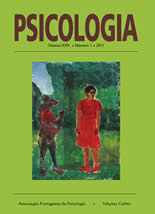Gender differences in work-family conflict: A study with Portuguese dual-earner families with toddlers
DOI:
https://doi.org/10.17575/rpsicol.v25i1.277Keywords:
-Abstract
Portugal has one of the highest rates of female employment in Europe. Therefore the male breadwinner model has become less prevalent. Nowadays, dual?earner families outnumber single earner families. Consequently, traditional gender roles seem to be outdated and men and women have to deal with new demands both in the work and family spheres. In this context, conflict relations between work and family occur. This study aims to analyse the experiences of inter?role conflict in men and women from dual?earner families with pre?school children (n= 492). Results showed that work to family and family to work conflict have different antecedents and that men and women deal and experience it differently. The antecedents of each type of conflict are also explored according to gender.


